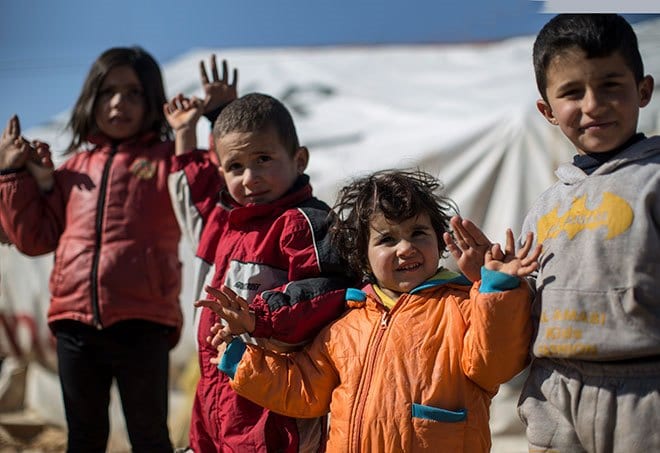The six wealthiest countries – which make up more than half the global economy – host less than 9 percent of the world’s refugees while poorer countries and territories are shouldering most of the responsibility, Oxfam said today.

The six wealthiest countries – which make up more than half the global economy – host less than 9 percent of the world’s refugees while poorer countries and territories are shouldering most of the responsibility, Oxfam said today. Jordan, Turkey, Pakistan, Lebanon, South Africa as well as the Occupied Palestinian Territory host over 50 percent of the world’s refugees and asylum seekers but account for under 2 percent of the world’s economy.
Oxfam’s analysis shows that collectively the United States, China, Japan, Germany, France and the United Kingdom hosted 2.1 million refugees and asylum seekers last year – just 8.88 percent of the world total. While Germany has recently welcomed far more refugees than the other richest nations, there still remains a major gap with poorer countries providing the vast majority of safe havens for refugees.
Ahead of two major summits about refugees and migrants in New York in September, Oxfam is calling on governments to not only host more people in need of safe havens, but to commit to do more to help the developing countries sheltering the majority of refugees and protect all people on the move.
Winnie Byanyima, Executive Director of Oxfam International said: “It is shameful so many governments are turning their backs on the suffering of millions of vulnerable people who have fled their homes and are often risking their lives to reach safety. Poorer countries are shouldering the duty of protecting refugees when it should be a shared responsibility, but many richer countries are doing next to nothing.
“The international displacement we are seeing is an unprecedented and complex challenge requiring a coordinated global response. The richest countries need to be part of the solution and do their fair share by welcoming and protecting more refugees.”
Over 65 million people have fled their homes because of conflict, persecution and violence; the highest level since records began. A third of these are refugees and asylum seekers, while the majority have been internally displaced. The conflict in Syria has been a major factor, but people are also fleeing violence in South Sudan, Burundi, Iraq and Yemen, and elsewhere.
This is happening as the mood for offering safe havens to people on the move is turning. The recent deal between European governments and Turkey has left thousands of men, women and children detained in Greece in often appalling conditions and in a legal limbo. The Kenyan government – when announcing the closure of the Dadaab refugee camp – said that if Europe could turn away Syrians, Kenya could do the same for Somalis.
“Too many people who have taken treacherous journeys to reach safety end up living in degrading situations littered with abuse, hostility and discrimination, and too few governments are doing anywhere near enough to help or protect them. We must stand as one with the millions of people who have been forced to flee as they need our help. Please sign Oxfam’s petition, and make our world leaders meeting in New York in September act,” said Byanyima.
Rachael Le Mesurier, Executive Director of Oxfam New Zealand called on the New Zealand government to take a stronger act of leadership following the recent small quota increase and relieve pressure on poorer nations. “It is unacceptable that wealthy nations are turning a blind eye to this crisis while the world’s poorer countries are stretched to their limits. Oxfam and other reputable organisations from across the political spectrum agree that increasing the New Zealand refugee quota to 1500, beyond the recent small step of just 250 people, will go some way to shouldering our fair share of the responsibility.
“New Zealand can do far more. Many of us are grateful migrants to NZ, we know how lucky we are to be here – and we must make a real difference when we extend a helping hand to those who need protection and assistance, and share the burden that is being borne disproportionately by poorer countries.”





